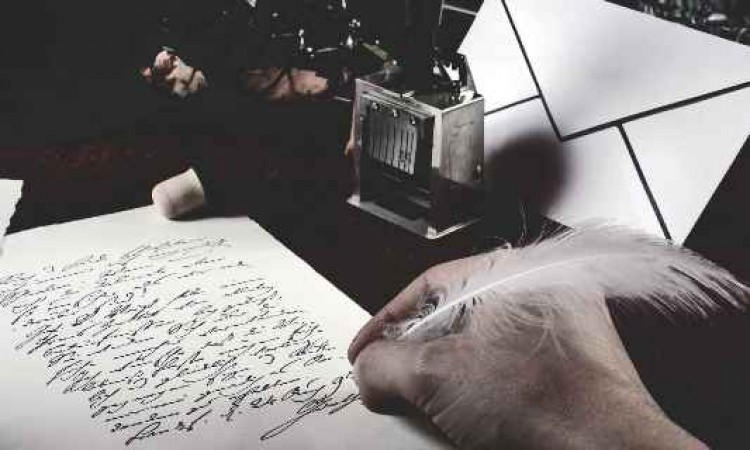
Several illustrious lyricists rose to fame during Bollywood's "golden age," which lasted from the 1950s to the 1970s, and they created timeless verses that still have an impact on viewers today. By infusing emotions and enhancing the storytelling with their poetic brilliance, these gifted wordsmiths were instrumental in defining the soul of Indian cinema. Let's explore some of the renowned lyricists who made a lasting impact on Bollywood during this pivotal era by learning about their lives and contributions.
Sahir Ludhianvi: Known as one of the greatest poets in Hindi film, Sahir Ludhianvi was renowned for his lyrics' profound social and philosophical undertones. His stirring lyrics were featured in movies like "Pyasa" (1957), "Naya Daur" (1957), and "Kabhi Kabhie" (1976), where they provided a moving depiction of love, longing, and societal issues. Sahir became adored and acknowledged as a legendary lyricist of his time thanks to the widespread appeal of his poetry.
Shailendra: Shailendra is a well-known singer whose lyrics have moved millions of people. He is known for his simplicity and moving expressions. He wrote stirring songs for movies like "Awara" (1951), "Guide" (1965), and "Mera Naam Joker" (1970), working with music directors like Shankar-Jaikishan and Salil Chowdhury. Music lovers of all ages continue to value his timeless compositions.
Majrooh Sultanpuri's lyrical finesse was characterized by his adaptability to different musical genres and his versatility. Memorable songs from his collaborations with S.D. Burman, R.D. Burman, and O.P. Nayyar can be heard in movies like "Pyaasa" (1957), "Teesri Manzil" (1966), and "Yaadon Ki Baaraat" (1973). Bollywood's musical landscape was enhanced by Majrooh's poetic brilliance in terms of both beauty and depth.
Anand Bakshi: Throughout the course of his illustrious career, Anand Bakshi wrote the lyrics to over 3,500 songs. Audiences were won over by his ability to empathize with the feelings of the average person. With songs appearing in movies like "Amar Prem" (1972), "Sholay" (1975), and "Dilwale Dulhania Le Jayenge" (1995), Anand Bakshi's legacy went beyond the golden age, influencing later generations of lyricists.
Gulzar: Gulzar, who is renowned for his evocative and poetic language, had a significant influence on Bollywood in the late 1960s and early 1970s. Soul-stirring songs from his collaborations with R.D. Burman and Vishal Bhardwaj, among others, can be heard in the movies Mere Apne (1971), Maachis (1996), and Omkara (2006). Gulzar received praise and admiration for his distinctive style and powerful storytelling in his lyrics.
Kaifi Azmi: Kaifi Azmi's contributions to Bollywood were distinguished by his forward-thinking, socially conscious poetry. He co-wrote stirring songs for movies like "Haqeeqat" (1964), "Heer Raanjha" (1970), and "Garm Hava" (1973) with composers like Madan Mohan and Ravi Shankar. His lyrical genius brought him widespread praise and solidified his status as one of the most famous lyricists of his era.
The legendary lyricists of that time played a crucial role in establishing a musical legacy that has endured to this day. The 1950s to the 1970s were a period of exceptional cinema. They are timeless figures in the world of Hindi film because of their poetic brilliance and capacity to elicit the essence of emotions from viewers. While we honor their contributions, their timeless verses serve as a reminder of the force of language and the enduring allure of Bollywood's golden age.
Exploring the Sundance Film Festival: A Global Celebration of Independent Cinema
Brits on High Alert in Niger: Unrest Prompts Urgent Call to Stay Indoors and Register Location
Hangul Day: Commemorating the Creation of Korea's Unique Writing System